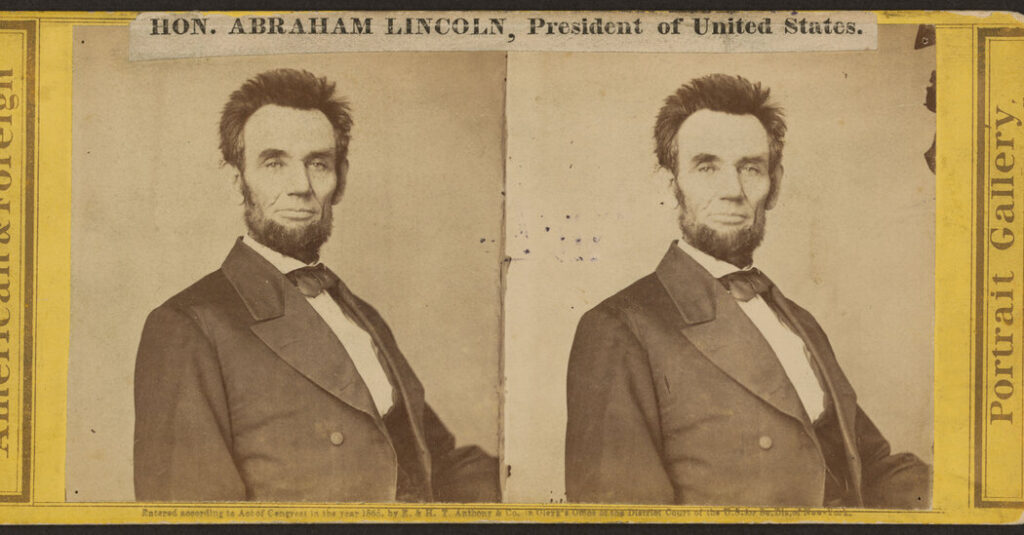[ad_1]
The overarching point of Lincoln’s speech was the threat of social disorder brought on by unregulated passion:
I hope I am over wary; but if I am not, there is, even now, something of ill omen, amongst us. I mean the increasing disregard for law which pervades the country; the growing disposition to substitute the wild and furious passions, in lieu of the sober judgment of courts; and the worse than savage mobs, for the executive ministers of justice. This disposition is awfully fearful in any community; and that it now exists in ours, though grating to our feelings to admit, it would be a violation of truth, and an insult to our intelligence, to deny.
The primary threat to America’s political institutions, Lincoln argued, was this mob spirit. But there was another threat as well — the grasping desire of ambitious men. This desire, Lincoln says, “disdains a beaten path”:
It seeks regions hitherto unexplored. It sees no distinction in adding story to story, upon the monuments of fame, erected to the memory of others. It denies that it is glory enough to serve under any chief. It scorns to tread in the footsteps of any predecessor, however illustrious. It thirsts and burns for distinction; and, if possible, it will have it, whether at the expense of emancipating slaves, or enslaving freemen.
What’s interesting here, beyond the obvious foreshadowing of that closing thought, is that Lincoln may have been talking about himself. “Probably most of Lincoln’s listeners thought this was nothing more than another rhetorical flourish at the end of a long speech,” David Herbert Donald notes in his biography of Lincoln. “Few could have realized that he was unconsciously describing himself. His ambition was no secret.”
This is one of the many things I find interesting about Lincoln. He coupled intense ambition — so overpowering that it brought him, at times, to despair — with a real awareness of how dangerous this ambition could be.
The other thing I’ll note about this speech is that it has one of my favorite lines from any Lincoln address. It is an observation about the United States of his day that still applies, I think, to our present.
At what point shall we expect the approach of danger? By what means shall we fortify against it? Shall we expect some trans-Atlantic military giant, to step the ocean, and crush us at a blow? Never! All the armies of Europe, Asia and Africa combined, with all the treasure of the earth (our own excepted) in their military chest; with a Bonaparte for a commander, could not by force, take a drink from the Ohio, or make a track on the Blue Ridge, in a trial of a thousand years.
At what point then is the approach of danger to be expected? I answer, if it ever reach us, it must spring up amongst us. It cannot come from abroad. If destruction be our lot, we must ourselves be its author and finisher. As a nation of freemen, we must live through all time, or die by suicide.
Emphasis mine.
What I Wrote
My Tuesday column was on the latest evidence that Donald Trump is, indeed, an insurrectionist.
Whatever the political arguments against disqualification — and whatever the practical considerations of keeping the former president off the ballot — both the Constitution and the historical record are clear. Trump is an insurrectionist, and he has no rightful place in the leadership of the American Republic.
And in my Friday column, inspired by comments by Nikki Haley, I tackled a question that is, strangely, in the air: Can a state secede from the union? The short answer? No.
The problem for Haley, then and now, is that the Constitution does not say that. And if there is a right to secede, as a previous generation of South Carolinians learned the hard way, you won’t find it in our founding documents.
If you listen to my podcast with John Ganz, our latest episode was on the 1996 action-thriller “Executive Decision.”
[ad_2]
Source link

